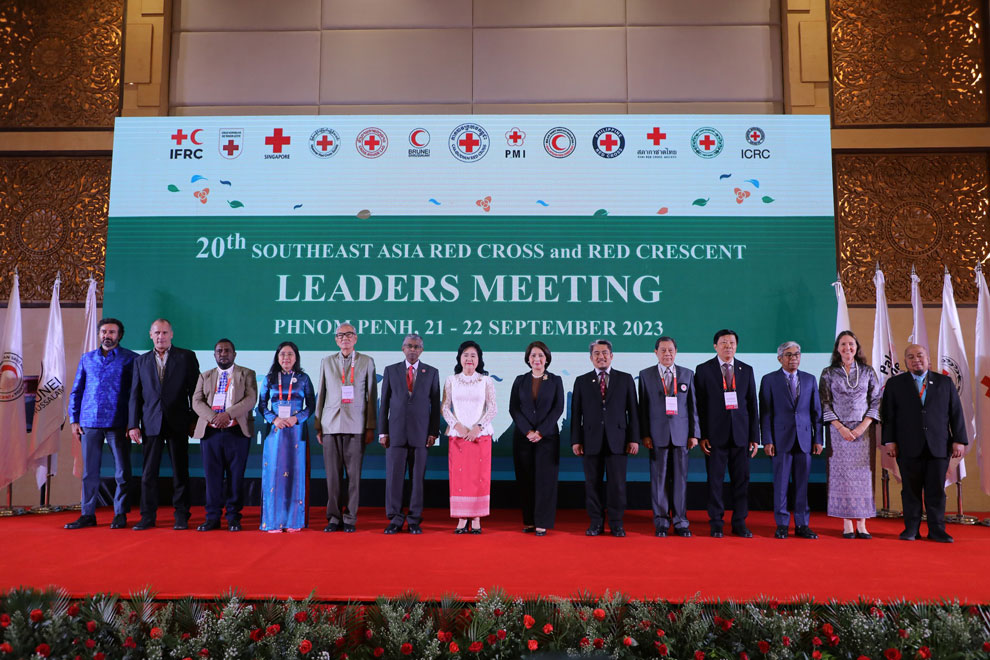
The 20th Annual Southeast Asia Red Cross Red Crescent Leaders Meeting concluded on September 22. CRC
Following a two-day meeting hosted by Cambodia, the leaders of 11 Red Cross and Red Crescent Societies in Southeast Asia signed a joint statement, aimed at building communities resilient to disaster.
The joint statement was signed in Phnom Penh on September 22 by Bun Rany, president of the Cambodian Red Cross (CRC) and chair of the 20th Annual Southeast Asia Red Cross Red Crescent Leader Meeting, along with the leaders of delegations from various nations.
Addressing the closing of the meeting, Bun Rany said the meeting – along with the 2nd Youth Forum, held at the same time – were held in the spirit of solidarity and cooperation to complement new humanitarian solutions.
“The statement we just signed is a testament to the acceptance of our concerted efforts to devise new solutions to meet challenges, achieve bigger positive results, be ready to respond to disasters – which are now more frequent and serious than ever – and to work together to build resilient and inclusive communities,” she said.
She added that the inclusion of a youth forum statement was an important part of the Phnom Penh Declaration, as it strengthened the core role of the youth. This included digital training for young people to promote knowledge sharing, experience and innovation, as well as an understanding of new global challenges such as climate change, environment, technology and public health.
“In the presence of the branch committee chairs and executive teams from the 25 capital-provinces, this meeting will continue to contribute to the joint efforts of the CRC to build communities resilient to disasters and the promotion of public health,” she added.
The meetings also highlighted the importance of carbon neutrality through green development plans for fresh air and better well-being and livelihoods for all humanity.
The Indonesian Red Cross will chair the next leaders meeting and youth forum in 2024, while the Vietnamese Red Cross will host the 11th Asia-Pacific Conference from November 21-24 under the theme “Preparedness before disasters in the Asia-Pacific region”.










